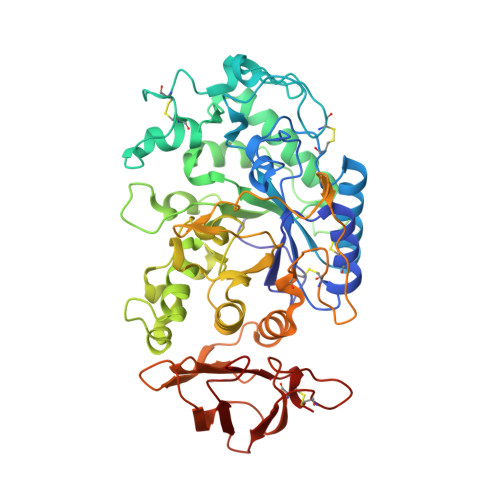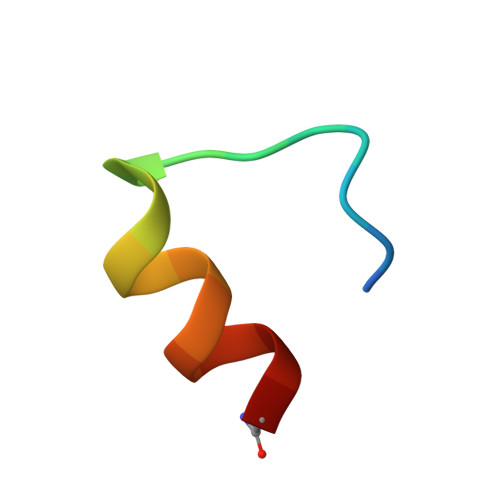Folding Then Binding vs Folding Through Binding in Macrocyclic Peptide Inhibitors of Human Pancreatic alpha-Amylase.
Goldbach, L., Vermeulen, B.J.A., Caner, S., Liu, M., Tysoe, C., van Gijzel, L., Yoshisada, R., Trellet, M., van Ingen, H., Brayer, G.D., Bonvin, A.M.J.J., Jongkees, S.A.K.(2019) ACS Chem Biol 14: 1751-1759
- PubMed: 31241898
- DOI: https://doi.org/10.1021/acschembio.9b00290
- Primary Citation of Related Structures:
5U3A, 5VA9 - PubMed Abstract:
De novo macrocyclic peptides, derived using selection technologies such as phage and mRNA display, present unique and unexpected solutions to challenging biological problems. This is due in part to their unusual folds, which are able to present side chains in ways not available to canonical structures such as α-helices and β-sheets. Despite much recent interest in these molecules, their folding and binding behavior remains poorly characterized. In this work, we present cocrystallization, docking, and solution NMR structures of three de novo macrocyclic peptides that all bind as competitive inhibitors with single-digit nanomolar K i to the active site of human pancreatic α-amylase. We show that a short stably folded motif in one of these is nucleated by internal hydrophobic interactions in an otherwise dynamic conformation in solution. Comparison of the solution structures with a target-bound structure from docking indicates that stabilization of the bound conformation is provided through interactions with the target protein after binding. These three structures also reveal a surprising functional convergence to present a motif of a single arginine sandwiched between two aromatic residues in the interactions of the peptide with the key catalytic residues of the enzyme, despite little to no other structural homology. Our results suggest that intramolecular hydrophobic interactions are important for priming binding of small macrocyclic peptides to their target and that high rigidity is not necessary for high affinity.
Organizational Affiliation:
Department of Chemical Biology and Drug Discovery , Utrecht Institute of Pharmaceutical Sciences, Utrecht University , 3584 CG Utrecht , The Netherlands.


















